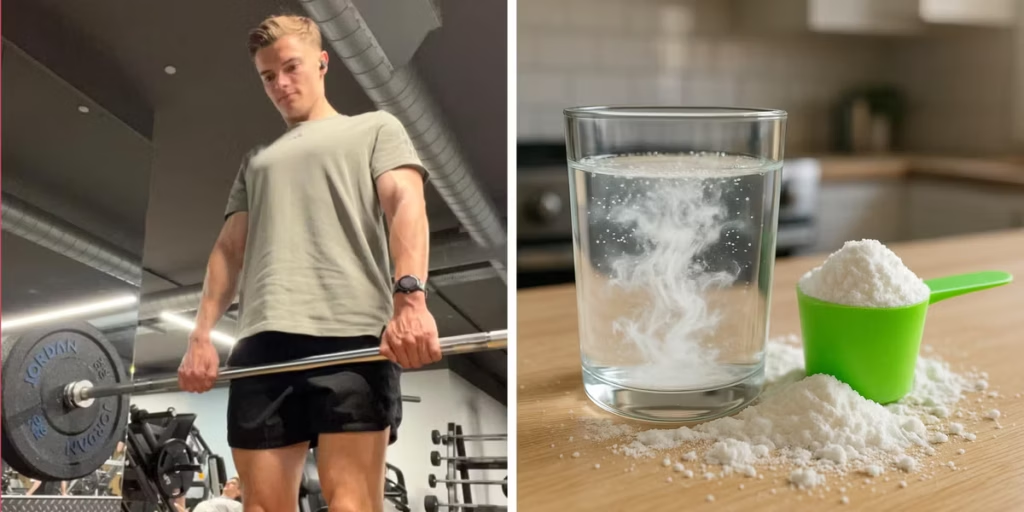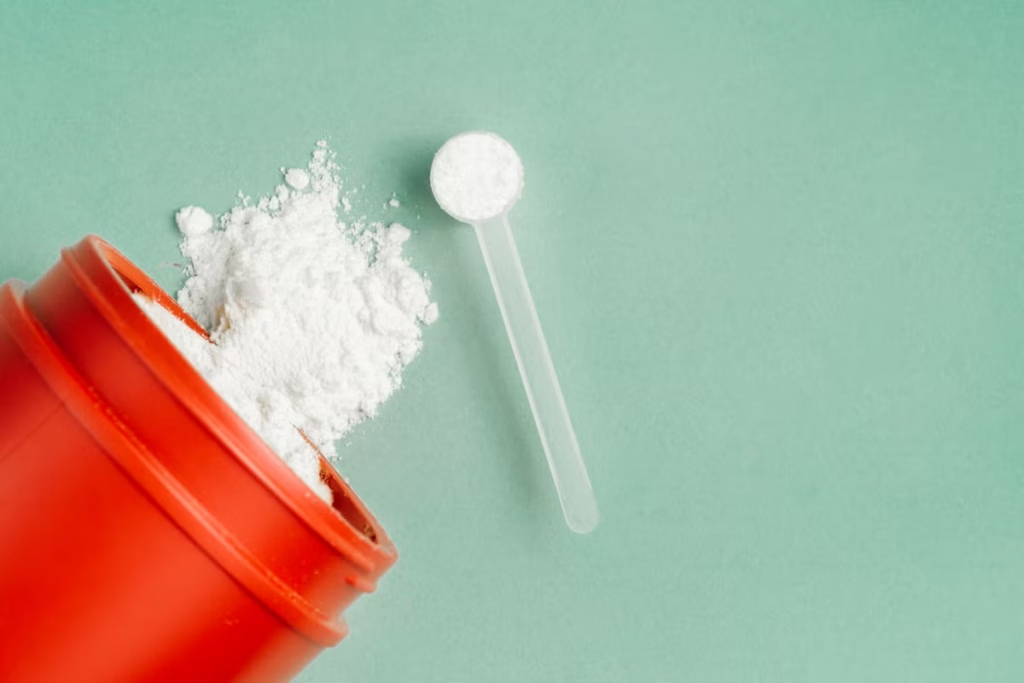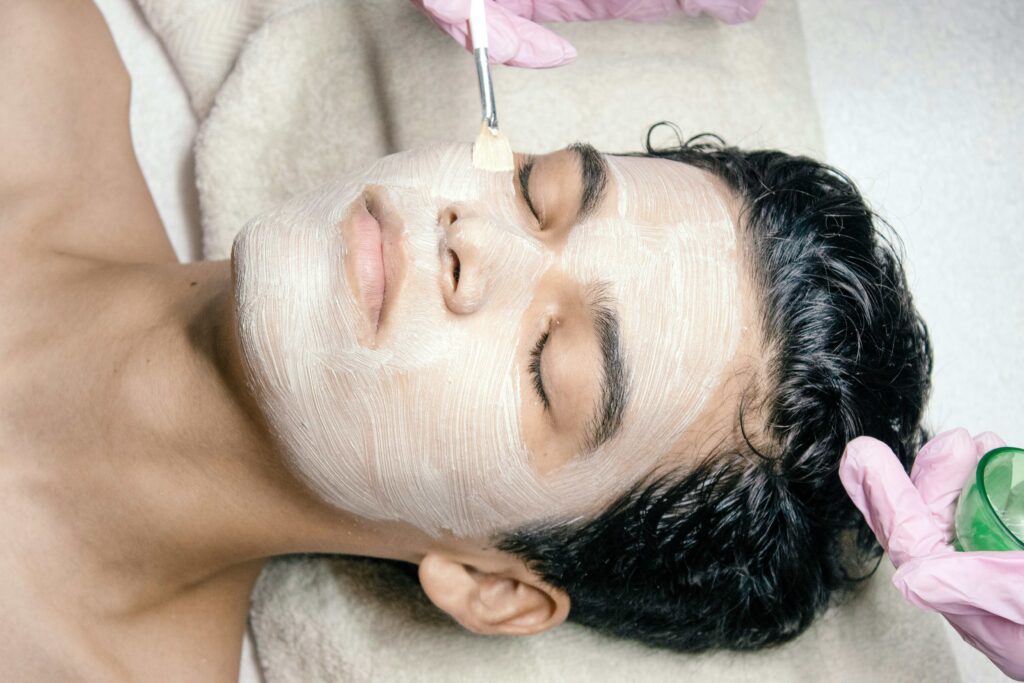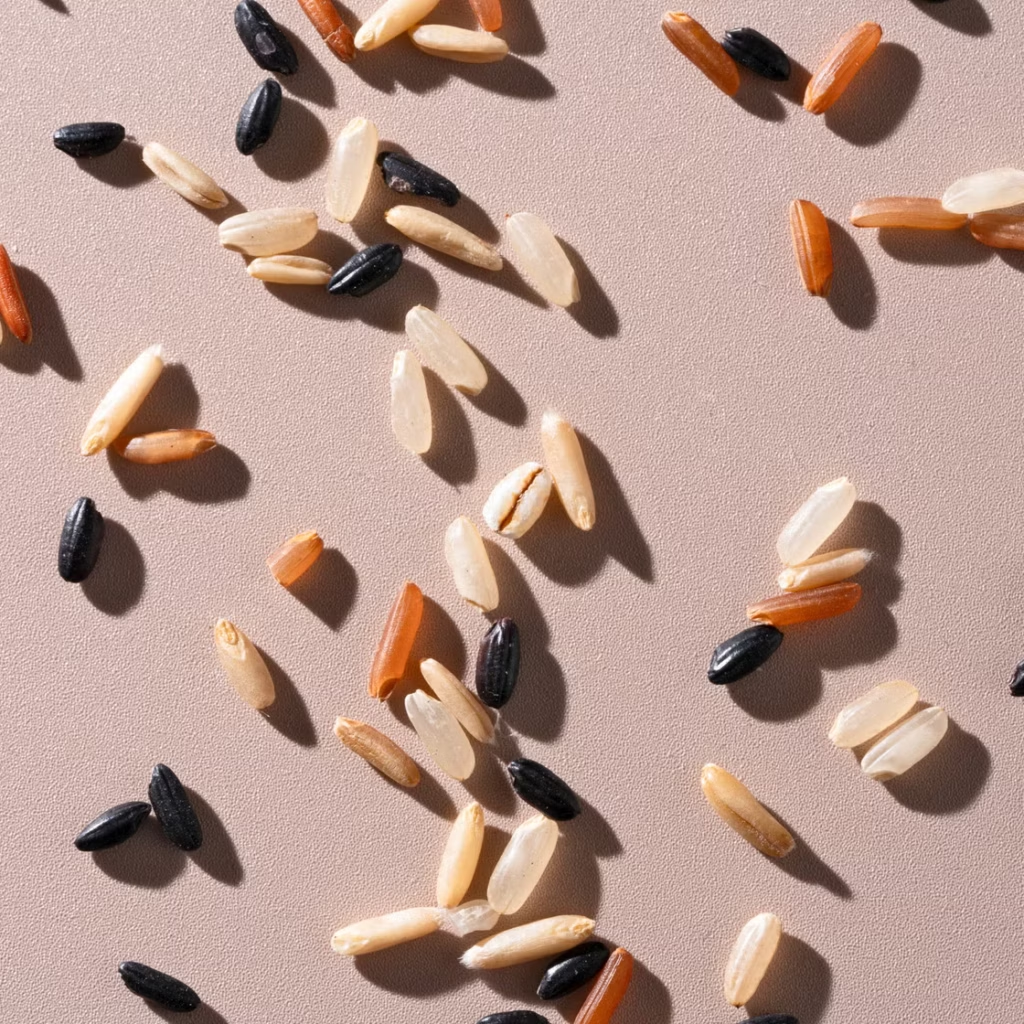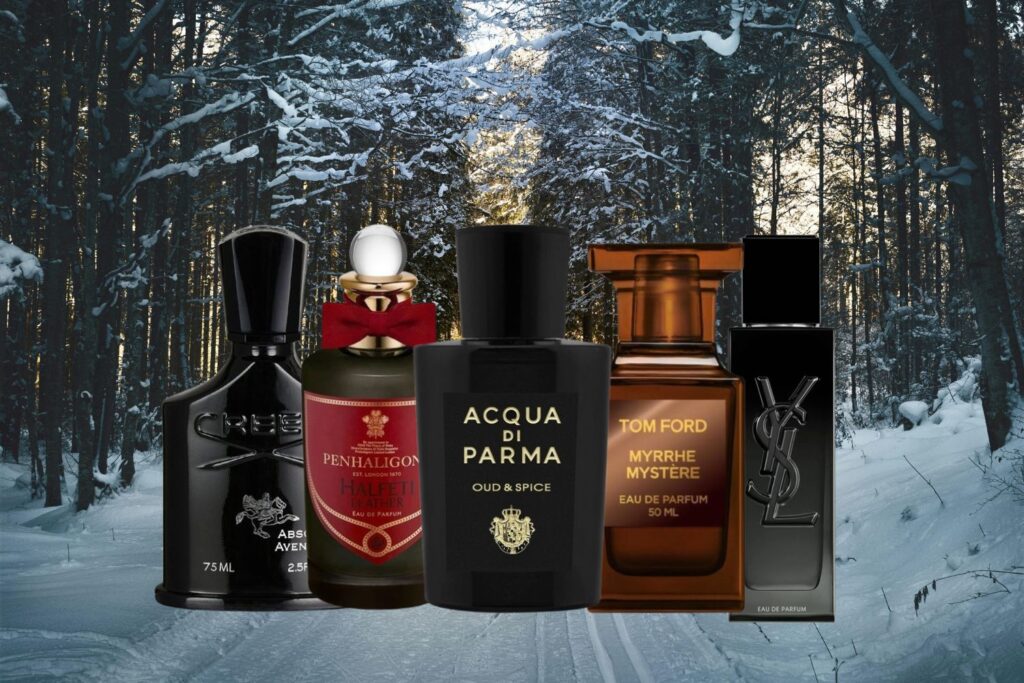YOUR HAIR IS thinning, and you’re over trying expensive oils, shampoos, hair masks, and crazy devices to get it back. We get it – balding is a common issue for men, with little effective treatment options. You might be overlooking one thing from your hair growth routine, though: food.
“I think more and more men are embracing an inside-out approach to grooming and self-care, and that includes eating more foods that are reported to help with hair growth,” says Kim Yawitz, R.D. Of course, hair growth depends on a slew of variables including age, genetics, and lifestyle choices.
“Normally, up to 10 per cent of your hair follicles are dormant at any given time. But nutrient deficiencies can cause your hair follicles to prematurely transition out of their growth phase, resulting in a higher percentage of follicles that are dormant,” says Yawitz. This can make the hair slower to grow, or even increase the likelihood of hair loss. Obviously, there’s no magic cure for this (or else all those hair growth devices and products wouldn’t exist).
Keeping that in mind, studies have shown that a balanced diet with adequate calories, protein, healthy fats, complex carbs, vitamins, and minerals supports healthy hair growth. Quite a few studies have also linked diets that eliminate certain foods with an increased risk of hair loss. “Some vegans I have worked with who have both lost weight and removed animal products have also reported hair thinning and or hair loss,” says Kimberly Gomer M.S., R.D., due to nutrient deficiencies.
Potential deficiencies linked to hair health include vitamins B12, D, E, A, and biotin, riboflavin, folate, zinc, and iron. Ensuring sufficient amounts may help prevent hair loss. But, getting extra amounts probably won’t benefit you.
“As of now, there’s not enough evidence to know if specific foods can promote hair growth in healthy men without nutrient deficiencies,” says Yawitz. “Fortunately, foods linked with better hair health have also been associated with other health benefits – like reduced inflammation and better gut health – so it makes sense to incorporate more of them regardless.”
Ahead, Yawitz and Gomer share what nutrients are linked to hair growth and the best foods to eat that may help you get thick and healthy locks.
What nutrients promote hair growth?
According to dietitians, the following nutrients may help usher in hair growth.
Biotin
“Biotin is a well-known supplement recommended for hair growth,” says Gomer, a registered dietitian in private practice. “Biotin is essential for the production of keratin, a protein in hair. However, if a person is not deficient, it probably will not help.”
Biotin and folic acid are B vitamins that help the body make more keratin, which is a structural protein in hair.
Zinc
Speaking of keratin, the mineral zinc may also help with your locks.
“Zinc is an antioxidant mineral that also increases keratin production,” Yawitz says. If a person is zinc deficient, supplementing with zinc may reverse their hair loss.
Omega-3 Fatty Acids
Omega-3s are good for your brain, and your hair. Omega-3 fatty acids are essential fats that help decrease inflammation in the body, says Yawitz, sharing that diets rich in essential fatty acids can help protect against hair loss.
“Omega-3 fatty acids may cause hair to enter its growth phase and stay in that phase longer, thus promoting hair growth,” says Yelena Wheeler, M.P.H., R.D.N. Sufficient fat intake is important for healthy hair.
Vitamin C
Reach for those citrus fruits and bell peppers. “Vitamin C is a water-soluble vitamin which has antioxidant properties that are protective of hair follicles and it is also a component in collagen production, which is vital for hair strength,” says Wheeler.
Vitamin C also assists with iron absorption, where those with iron deficiency anemia have been shown to have hair loss.
Vitamin A
Vitamin A is another winner on the follicle front. “Vitamin A is a fat-soluble vitamin that assists with cell growth and sebum production,” says Wheeler. “Having adequate sebum allows for a healthy scalp, which promotes hair growth and reduces hair loss.”
Vitamin E
Both Gomer and Yawitz say vitamin E is an antioxidant that helps prevent oxidative stress that may lead to hair loss, since it can help protect the hair follicles from damage.
Protein
Don’t overlook the importance of getting enough protein if you’re looking to bring on some hair growth. “Hair follicles are made of protein so adequate protein is essential for healthy hair growth and maintaining healthy hair,” says Gomer, who noted that adequate calorie intake is also important for hair growth (and overall health).
The best foods for hair growth
As we mentioned above, it’s more than just your diet that controls your hair growth.
“Hair loss can be [due to] hormone imbalances, medications, genetics, environmental exposure, and diet. Diet is one thing that may be easier to change that will have an impact on hair,” says Gomer. Your best course of action for bettering hair loss is to talk to your dermatologist and see if they think a change in diet will help you.
“There are many players involved so it is challenging to figure out which are being impacted to cause the problem in each individual,” says Gomer. “Certainly, any deficiencies be they vitamin, mineral, or protein should be addressed for not only hair growth, but overall health.”
Here are the 14 best foods that contain many of the nutrients above, and may help with hair loss.
1
Fatty Fish
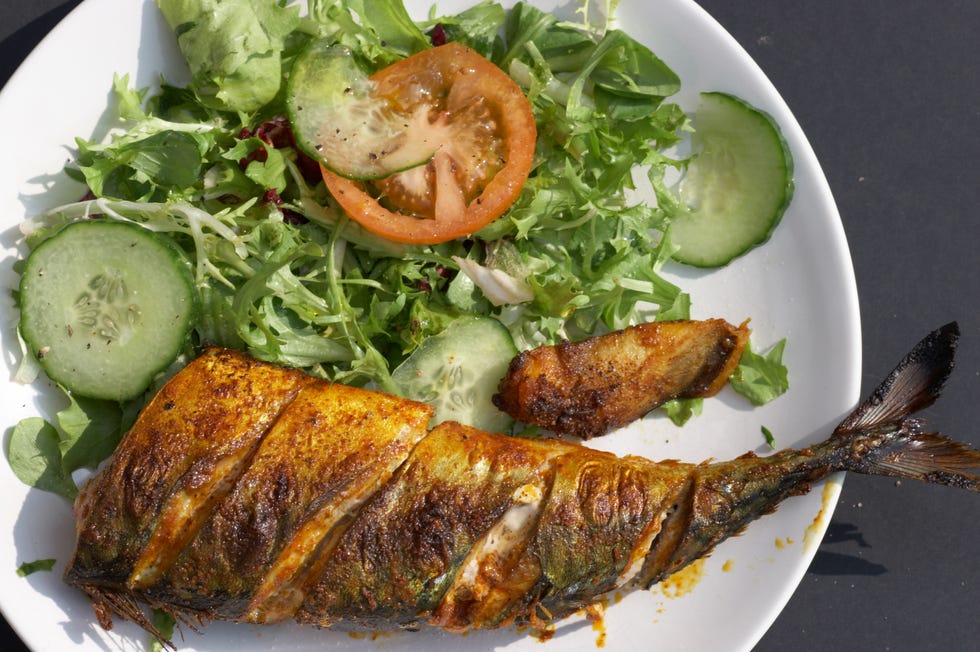
Gomer recommends eating fatty fish like herring and mackerel, as they “have nutrients that may promote hair growth.” They are excellent sources of omega-3 fatty acids which is linked to hair growth.
2
Salmon
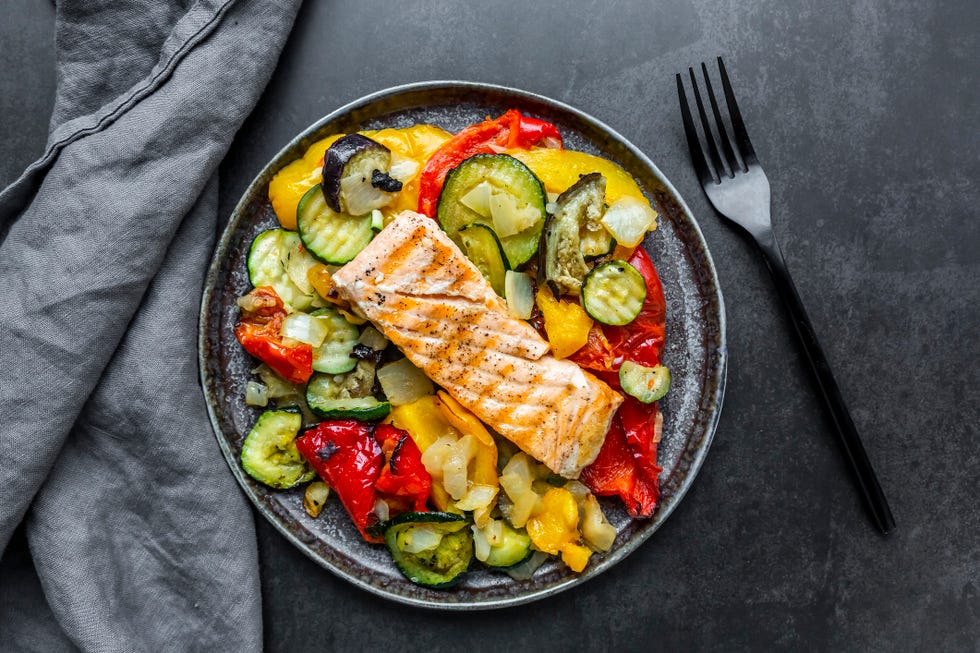
Let’s take a moment to single out salmon, a great and popular source for omega-3s.
“Most adults can get all the omega-3 fatty acids they need by eating just two servings of salmon weekly,” says Yawitz. You can have your salmon grilled, broiled, raw, or mixed in with scrambled eggs—a great source of biotin.
3
Eggs

Speaking of eggs, they’re “are a great source of protein and biotin, two nutrients that are essential for hair growth,” says Gomer. They’re also “a great source of zinc, selenium, and other hair-healthy nutrients. This makes them one of the best foods to consume for optimal hair health.”
Eggs are easy to fit into your diet. It bears repeating, though: Like other nutrients involved with your hair health, biotin can help if you are lacking proper amounts of it, but getting extra biotin isn’t going to work wonders for your strands. Biotin is only “known for preventing hair loss when there is a deficiency,” says Wheeler.
4
Capsicums

Red, green, yellow, or orange – whatever colour you prefer, add capsicums to your plate for a dose of extra hair-supporting nutrients.
“Peppers are high in vitamin C which acts like an antioxidant and a collagen producer which can assist with hair growth,” says Wheeler. Add them to omelets or eat them raw with a side of hummus.
5
Almonds

This wholesome snack is good to reach for if you’re hoping to support healthy hair.
“Almonds contain several nutrients thought to promote hair growth. Just one ounce provides nearly half of your daily vitamin E requirement, plus some B vitamins, zinc, and essential fatty acids,” says Yawitz.
6
Other Nuts
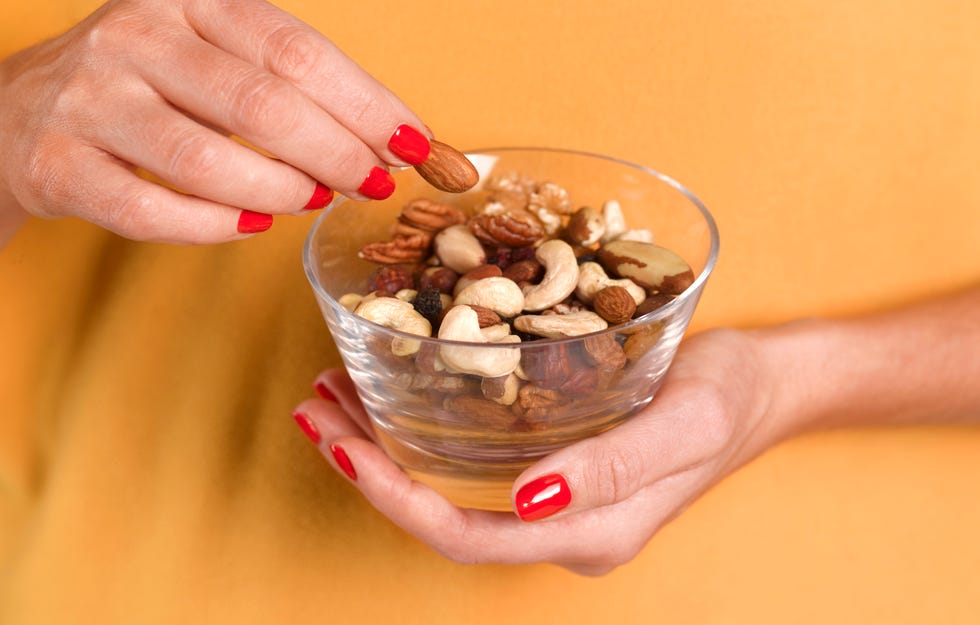
If almonds aren’t your thing, other sorts of nuts may help with hair growth, too. “Nuts are packed with nutrients like vitamin E, B vitamins, zinc, and essential fatty acids,” says Gomer of pistachios, almonds, and the like.
7
Seeds
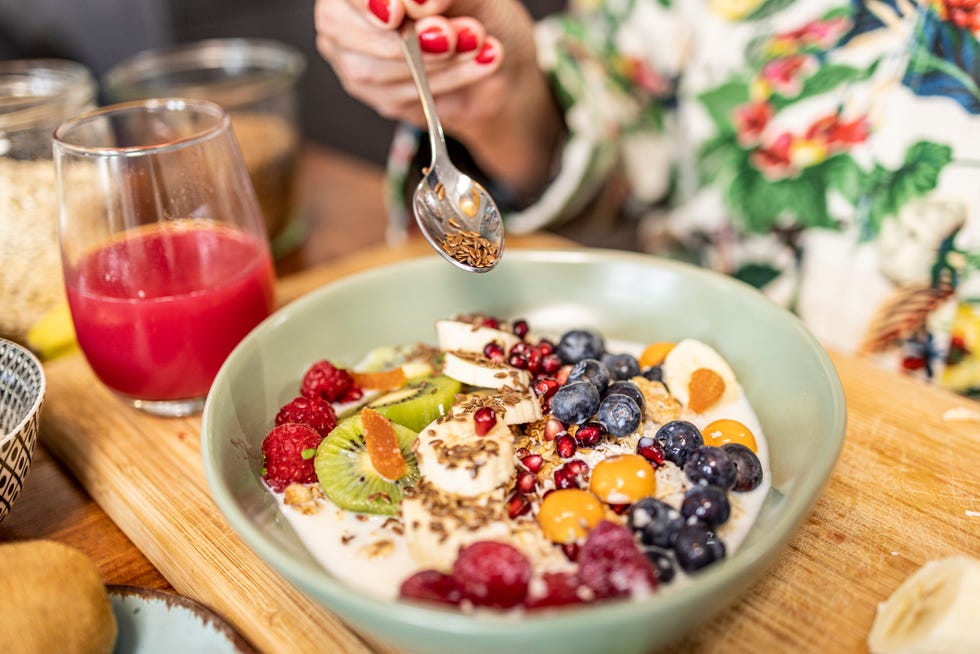
“Like nuts, seeds are rich in vitamin E and other nutrients that may promote hair growth,” says Gomer. “Some seeds also contain omega-3s, which have been linked to hair growth.”
Snack on some pumpkin seeds or sprinkle some flax seeds onto an acai bowl or into a homemade salad dressing.
8
Tofu
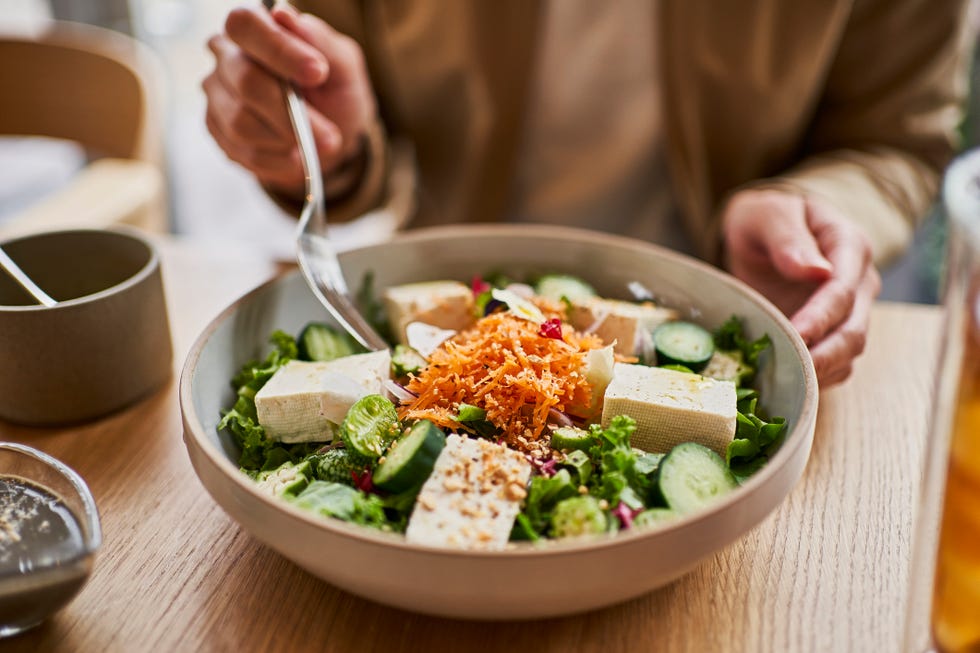
“Tofu and other soybean products contain spermidine—a substance known for its antioxidant and anti-inflammatory properties,” says Yawitz.
A 2017 study, published in Dermatology Practical & Conceptual, showed that the hair follicles of adults taking a spermidine-based nutritional supplement remained in their growth phase longer than those taking a placebo.
9
Yoghurt
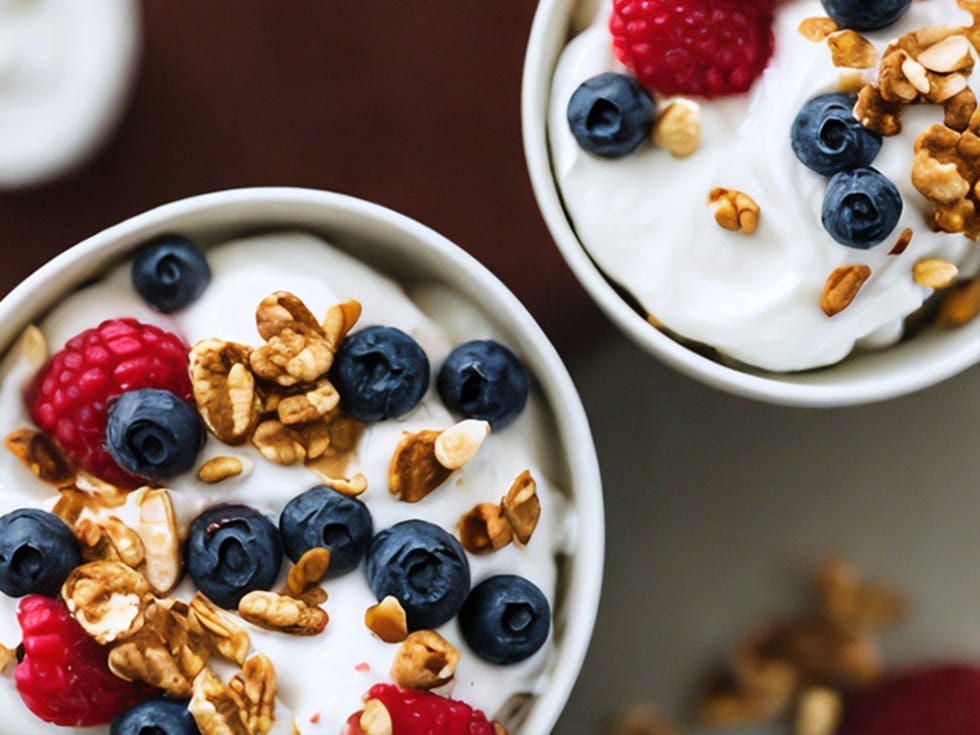
“In addition to being a good source of protein, yogurt contains beneficial bacteria that may help promote hair growth,” says Yawitz. One study in which mice given probiotic yogurt had increased hair growth and fuller, more lustrous coats after 20–24 weeks. Important to note: this was an animal study, meaning similar results in humans are not confirmed.
“If you want to give it a try, be sure to look for products that contain live and active cultures – it’ll say it on the label,” she says.
10
Oysters
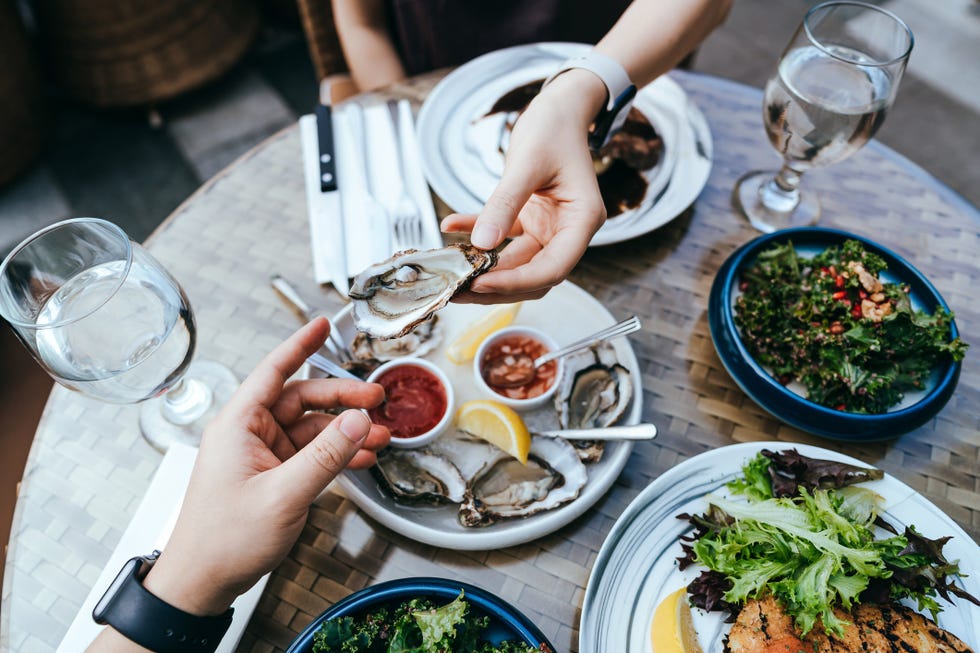
“Men need around 11 milligrams of zinc daily for optimal hair growth,” says Yawitz. “You can get all the zinc you need in a day by eating just two medium oysters at your next dinner party.” We don’t know about you, but you don’t need to give us an excuse to eat more oysters.
11
Avocados
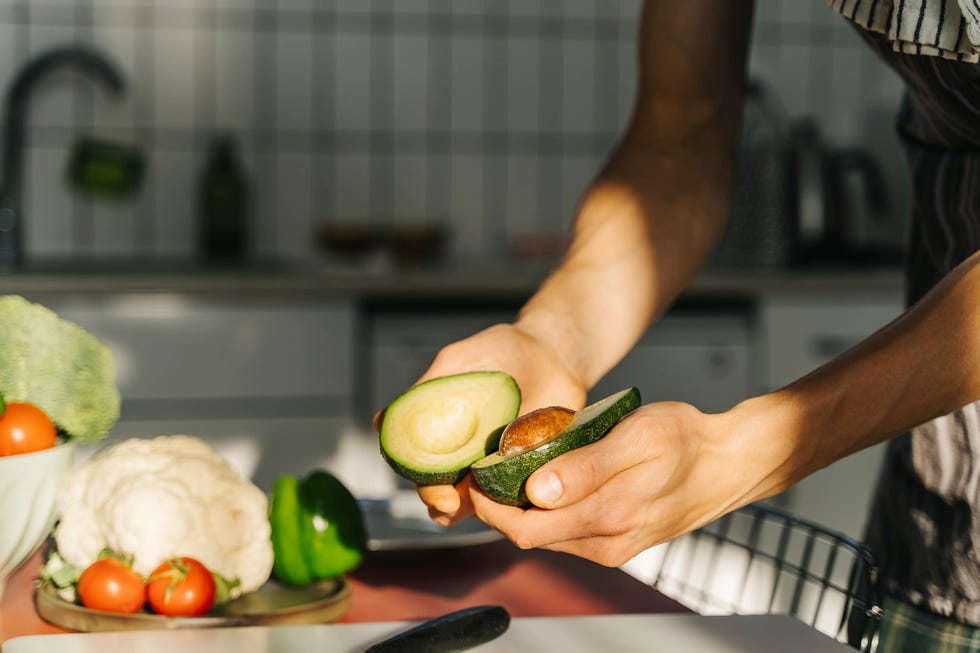
“Avocados are rich in omega 3s and vitamin E. This antioxidant helps prevent oxidative stress that may lead to hair loss,” says Gomer. Use avocados as a side with eggs or have some guacamole as a snack or meal component.
12
Mangos
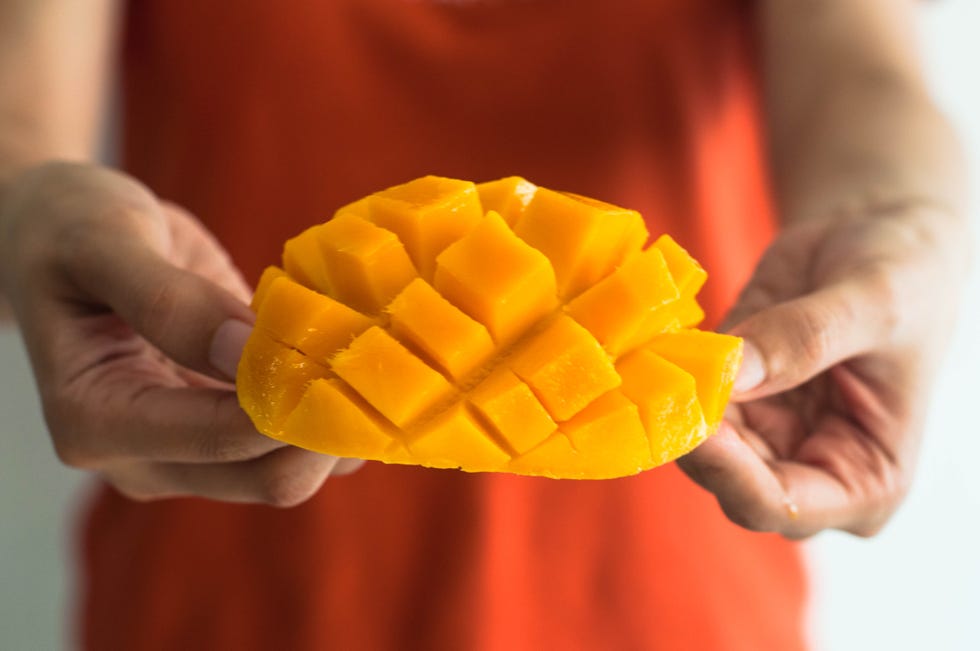
Wheeler says to incorporate this tropical fruit into your diet for your hair health. “Mangos are high in vitamin A which can assist with cell growth and scalp health.”
Though mangoes are delicious on their own, you don’t need to simply eat them straight. Add them to your the diet by making smoothies, mango salsa, or as part of a fruit salad.
13
Beans
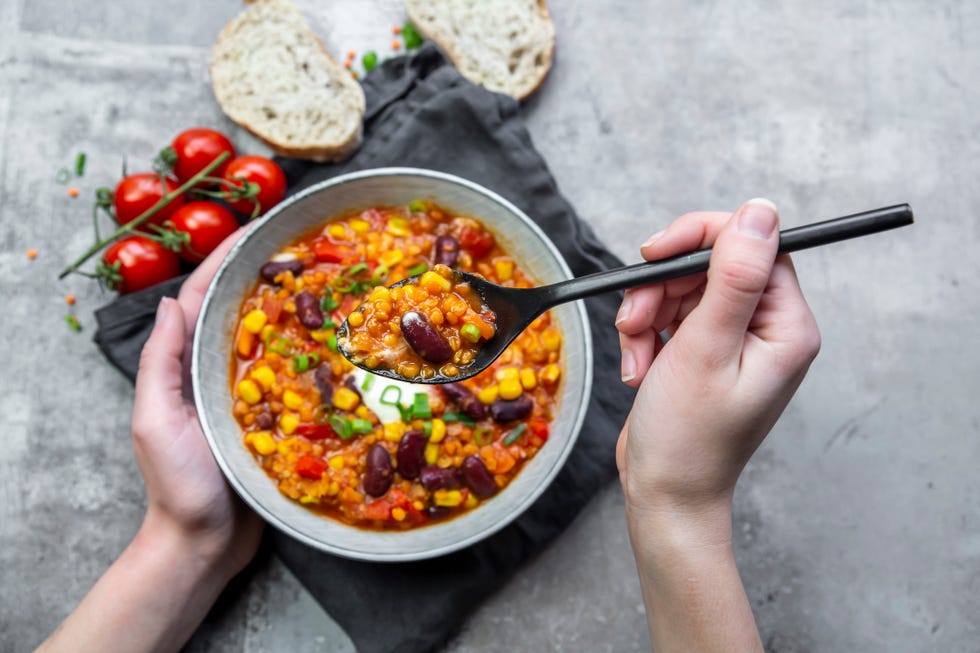
Gomer highlighted beans as another source of zinc.
“Beans are a great source of protein, iron, zinc, and biotin, which are all essential for optimal hair health,” she says. “Together, they may support hair growth.”
14
Meat
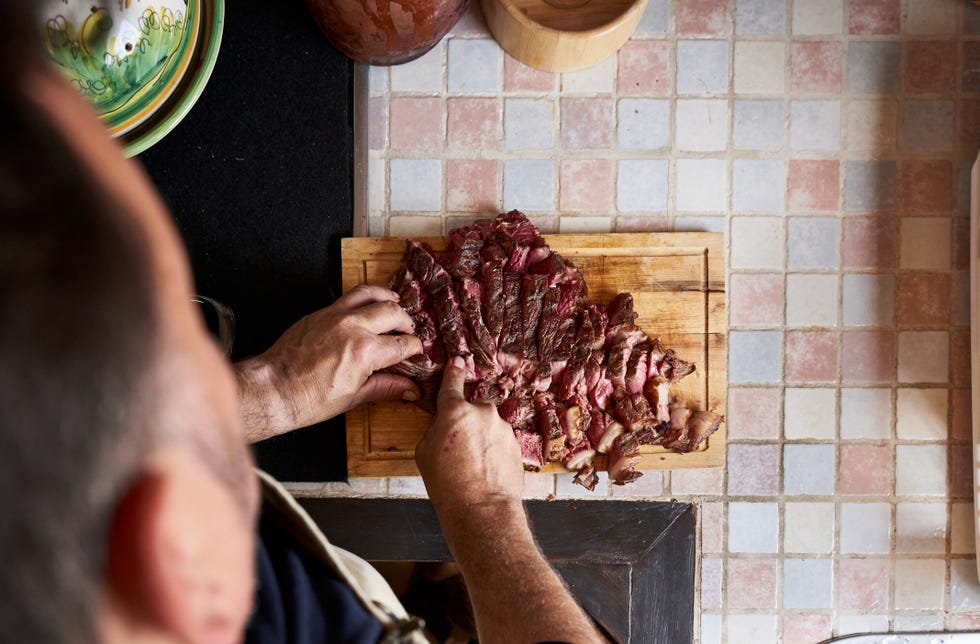
“Meat is a staple in many people’s diets and is rich in nutrients that may aid hair growth. The protein in meat aids growth and helps repair and strengthen hair follicles,” says Gomer.
Red meat in particular is rich in a type of iron that’s easy to absorb. Iron helps our red blood cells deliver oxygen to all cells in our bodies, including our hair follicles.
This article originally appeared on Men’s Health US.
Related:
5 Common Hair Loss Myths You Need to Stop Believing – And The Truth Behind Them








